Developing leaders for a better world
Innovative teaching methods - in the service of high-impact learning
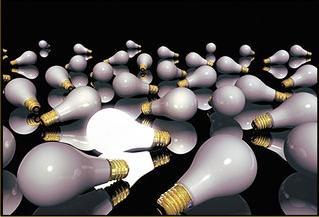 As an educational institution focused on developing responsible future leaders, and with a desire to be part of building a better future, we at IEDC-Bled School of Management seek to maximise the impact of the education that our students receive. Something that we as educators often don’t reflect upon enough is what it is that we are actually doing. I am reminded of a famous quote attributed to Socrates: “Education is about kindling a flame, not filling a vessel”.
As an educational institution focused on developing responsible future leaders, and with a desire to be part of building a better future, we at IEDC-Bled School of Management seek to maximise the impact of the education that our students receive. Something that we as educators often don’t reflect upon enough is what it is that we are actually doing. I am reminded of a famous quote attributed to Socrates: “Education is about kindling a flame, not filling a vessel”.
Often I worry that education is understood more as a filling of a vessel and far less as kindling a flame. What Socrates meant of course is that filling a vessel – giving people new ideas, concepts, theories, skills – is only part of the educational equation, and in fact not the most important part. What great education does is encourage a flame within students; a burning desire to take new ideas, concepts, theories, skills actively forwards into the future with a burning desire to continuously engage in lifelong learning. What this actually means is that education – in addition to presenting rigorously developed, research rooted knowledge – is about creating memories that are more than facts, figures, theories and concepts. It is about creating memories that flame in the minds and hearts of students to live out that which they have learned and to continuously seek to learn more. Recently I published an article in the journal Management Learning, in which I refer to this as “Memories with momentum”. What education needs to focus more upon is creating educational experience which lives on with students in momentous ways. That is to say, we need to engage in educating with a view to creating learned memories which remain with students and inform their future practice.
In my teaching, and across IEDC’s curriculum, this is a significant focus. While the content is based on firm foundations of academically rigorous, researched, tested material, the delivery of this content is targeted towards creating memories with momentum. We do not shy away from exploring, improvising with and innovating on how to maximise students’ experiences in the classroom. We absolutely focus on kindling flames for taking this learning forwards and in developing the desire to never stop learning, no matter how many certificates or degrees one may have earned.
In our continuous striving for this we heavily focus upon experiential, action learning methods. Within this overall focus we employ a wide range of processes and experiences. Some of these practices may be familiar. For example, in most of our MBA courses there is a focus on case studies. Additionally, all of our MBA students engage in real world consulting projects with real companies working with real problems. However, some of our methods are also unique innovations. In particular we have been focused on blending business and the arts. Across our programmes, from PhD to MBA to open enrollment courses, you can find elements of the arts furnishing the experiences of students. We use the arts to help our students shift mindsets towards questions about ethics, morality, and philosophy as well as to engage in more sympathetic and empathic processes. Through dialogues with artists, engaging in arts-based practices (e.g. conducting choirs, painting, sculpture) participants also gain fundamental insights into major 21st century business issues such as creativity and innovation processes.
This all lies in the service of creating momentous learning, educational and developmental memories for our students. As they learn essential skills, functional knowledge and more, and as we raise essential questions around ethics, morality and philosophy, we do so in highly engaging ways, creating memories which kindle flames for the future.
Additionally, the school is focused not only on employing such methods, but in developing cutting edge research around management and leadership education and practice.
IEDC’s latest invention - learning accelerator studios
 Recently we began a project focusing on the hot topic of MOOCs (Massive, Open, Online Courses). With our alumni we are taking the ‘Leading Strategic Innovation in Organizations’ MOOC, delivered by Dr David Owen of Vanderbilt University (USA), combined with five learning accelerator studios being held at IEDC. This blended learning format is an innovation dreamed up by myself and two of our visiting faculty members, Prof. Nancy Adler and Prof. Arshad Ahmad. Along with this blended learning experience, and in collaboration with Dr Owen, we are leading a research project on the experience of MOOC participants, exploring this phenomenon’s pluses and minuses, and how it can be harnessed to further executive education globally.
Recently we began a project focusing on the hot topic of MOOCs (Massive, Open, Online Courses). With our alumni we are taking the ‘Leading Strategic Innovation in Organizations’ MOOC, delivered by Dr David Owen of Vanderbilt University (USA), combined with five learning accelerator studios being held at IEDC. This blended learning format is an innovation dreamed up by myself and two of our visiting faculty members, Prof. Nancy Adler and Prof. Arshad Ahmad. Along with this blended learning experience, and in collaboration with Dr Owen, we are leading a research project on the experience of MOOC participants, exploring this phenomenon’s pluses and minuses, and how it can be harnessed to further executive education globally.
In conclusion, business education for the 21st century must absolutely address the fundamental questions of our times. As academics, researchers and educators we must actively work to facilitate student engagement with these questions, particularly around ethics, morality and philosophy. How we do this also needs to be addressed. The millennia old format of passive learning (lecturing to students who sit silently in a lecture hall) just isn’t working. We need to think deeply not only about what we are passing along to our students, but how we are passing the knowledge along. We need to engage students in actively co-creating the learning environment through experiential, action based learning. We need to focus not on filling vessels but of kindling flames full of momentous learning memories which drive future action and inspire future learning. <<
Dr. Ian Sutherland, Executive PhD Director and Deputy Dean for Research
www.iedc.si
The original article was published in Slovenian Times.
Alte articole din aceasta sectiune:
-
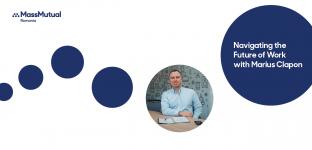 Navigating the Future of Work: an interview with Marius Clapon, Head of IT Delivery @MassMutual Romania
Navigating the Future of Work: an interview with Marius Clapon, Head of IT Delivery @MassMutual Romania
- Discover InThePocket - New IT company to keep an eye on
- Discover Revolut - the TECH company to keep an eye on in 2024
- Centrul de tehnologie si operatiuni al LSEG (London Stock Exchange Group) ajunge la 1000 de angajati in Bucuresti
- Meet BAT Romania






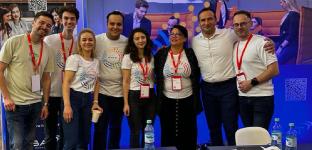
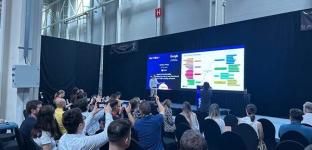
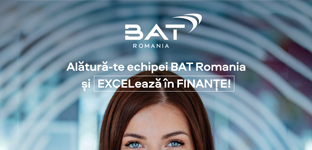

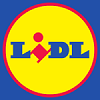
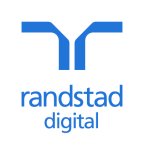


Raporteaza eroarea la